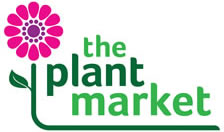Scotland’s horticultural industry gathers with MSPs at Holyrood to discuss Scottish Environmental Horticulture Growth Strategy
MSPs and experts from Scotland’s horticulture sector gathered at the Scottish Parliament on Wednesday, 10 May at a reception to discuss the future of the sector and commit to practical actions their organisations can take to create a healthier Scotland through horticulture.
Hosted by the Horticultural Trades Association (HTA) and supported by Christine Graham MSP, the event celebrated the recently published Scottish Environmental Horticulture Growth Strategy, which sets out ambitions to develop green economic growth, high quality jobs and an investment in education and skills in Scotland.
Cabinet Secretary for Rural Affairs, Land Reform and Islands, Mairi Gougeon MSP, delivered a keynote address at the event.
Speaking on the evening, the Cabinet Secretary said: “Scotland’s environmental horticulture sector makes a significant contribution to our national economy, including creating green jobs, and that is rightly being acknowledged at today’s reception.
“Delivering a wellbeing economy is a key focus of the Scottish Government under our new First Minister, and the horticultural industry certainly has its place in helping us achieve that.”
MSPs attending the reception were invited to pledge to plant a tree in their local communities which will be sponsored by the MSP’s local HTA member.
James Barnes, HTA chairman, said: “Horticulture and landscaping supported contributions of £2.8bn towards GDP and over 64,000 jobs in Scotland in 2019. This has the potential to rise significantly by 2030 if the industry and key stakeholders work together now.
“There is huge potential for the environmental horticulture sector in Scotland, which can benefit the economy, increase biodiversity, mitigate climate change and support people’s wellbeing, both physically and mentally.”
The Scottish Environmental Horticulture Growth Strategy was written in conjunction with HTA colleagues, members and the Scottish Government, and invites stakeholders to engage with seven ambitions that showcase the benefits of environmental horticulture.
Stan Green, Director of the HTA’s Scotland Policy Board and Managing Director of Growforth nursery, said: “Scotland has the heritage, and the further educational establishments to develop the skills needed to unlock green growth from environmental horticulture. I’m really pleased to have been able to discuss our vision for Scottish horticulture at Wednesday’s reception and look forward to working with the Scottish Government to deliver our ambitions.”
-ENDS-
Notes to editors
About the HTA
The Horticultural Trades Association (HTA) is the trade association for the UK garden industry. Representing some 1,500 member companies, it supports the employment of 674,000 people.
As of 2022, the HTA represents the breadth of UK environmental horticulture sector – retailers, growers, domestic landscapers, and manufacturers/suppliers, a majority SMEs and spread across the breadth of the four nations of the UK.
The HTA’s associations and groups include the Ornamentals Management Committee (OMC), the Association of Professional Landscapers (APL) and the Growing Media Association (GMA). The trade body is a member of the British Retail Consortium (BRC).
Peat made up less than 30% of the compost sold to gardeners in the UK in 2021. The HTA’s figures show that the industry is making dramatic strides to voluntarily phase out peat and calls for the Government to support efforts to find alternatives to the product.
Ornamental horticulture and landscaping in the UK is expected to contribute c£42 billion to national GDP in 2030, with around 763,000 jobs expected to be supported by ornamental and landscaping.
A YouGov survey for the HTA found that 76% of UK adults have access to a private garden and that 82% of UK adults agree that having access to a garden or public green spaces is important to them (YouGov, October 2022).




